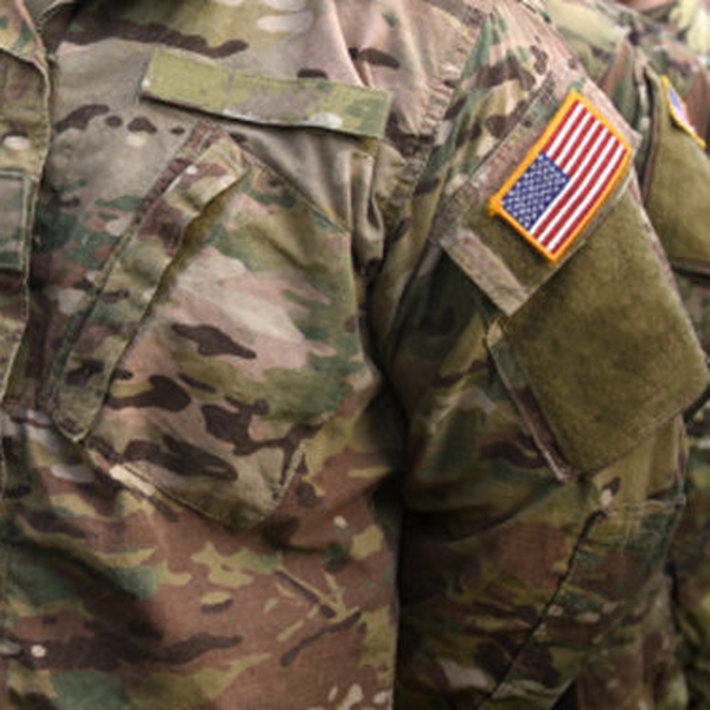Drug and Alcohol Addiction Among Veterans

Drug addiction occurs among all American demographics, veterans included. However, veterans may feel like they cannot talk openly about their substance abuse problem, or they may consider that there are no real treatment options available to them even if they were to talk about their individual hardships with drinking alcohol or using drugs.
Given the underlying stigmas and critical challenges that directly hamper veterans with substance abuse issues, it’s up to their family members and loved ones to:
1. Understand the problem of substance abuse among veterans.
2. Help their veteran loved ones seek treatment.
Statistics on Drug Use Among Veterans
When active duty service members retire from the military, they come home to civilian life and face many of the same challenges that nonveteran Americans do. However, they may also come home with lasting physical wounds to cope with, our with mental trauma from experiences they had in their service. These added factors can exacerbate the struggles of their day-to-day lives, struggles that sometimes lead retired soldiers to use drugs or alcohol as a coping mechanism.
“The ... military culture often places importance and value on self-reliance. Therefore, military veterans may be more likely to strive to solve mental health issues on their own and view getting professional mental health treatment as a sign of ‘weakness.’”
There is also a powerful cultural stigma that veterans face that civilians do not. Quoting one paper examining substance abuse among veterans, “The ... military culture often places importance and value on self-reliance. Therefore, military veterans may be more likely to strive to solve mental health issues on their own and view getting professional mental health treatment as a sign of ’weakness.’” Veterans face unique challenges that create significant risk for substance abuse, and these must be addressed.

To examine the scope of addiction among veterans, the National Institute on Drug Abuse compiled the following information:
- Rates of drug abuse increase when military members leave service, with between one in ten and one in eleven veterans being addicted to drugs and alcohol. According to the data, veterans are also at high risk for co-occurring harm while being addicted to drugs, such as suffering from homelessness, pain, trauma, and other critical factors that exacerbate their substance abuse problem.
- Approximately 3.5% of veterans report using marijuana, and 1.7% report misusing other illicit drugs. Data also shows that these numbers are increasing, with a more than 50% increase in cannabis use among veterans between 2002 and 2009.
- About two-thirds of veterans report experiencing physical pain, a higher percentage than among the non-veteran population. About 9.4% of veterans report struggling with severe pain, compared to 6.4% of non-veterans. Higher rates of physical pain lends itself to higher rates of prescription opioid use and a greater risk for opioid misuse as a result.
- From 2001 to 2009, the percentage of veterans receiving a prescription for opioid pain relievers increased from 17% to 24%. Following that increase, the rate of overall opioid overdoses among veterans also increased, from 14% in 2010 to 21% in 2016.
- Veterans are more likely to use alcohol when compared to their non-veteran counterparts (56.6% vs. 50.8%). Veterans are also more likely to drink alcohol to excess than non-veterans are (7.5% vs. 6.5%).
The data show that veterans who have experienced trauma or who were hospitalized in the line of duty are at increased risk for misusing alcohol or using drugs once out of the military.
While survey data relies on participant truthfulness, one study of 600 Iraq/Afghanistan veterans found that 39% of the veterans surveyed met the criteria for alcohol addiction. The same group reported that substance abuse among active-duty personnel had also gone up, which can often carry over into a veteran’s life post-service.
Another point to consider is that the overall rate of substance abuse among veterans has increased dramatically in recent years, with Iraq and Afghanistan war veterans reporting substance abuse at a rate much higher than veterans from previous wars. The Substance Abuse and Mental Health Services Administration reported that veterans of recent wars (Iraq and Afghanistan) had a 12.7% chance of struggling with addiction. Veterans from the 1990s, mainly from the Persian Gulf War, only had a 6.6% chance of struggling with addiction, indicating that addiction risk has doubled for veterans of Iraq and Afghanistan.
One of the key factors of substance abuse among veterans is that the veterans who have it worst in life (injuries, trauma, permanent damage, and other co-occurring life struggles) are most at risk for substance abuse. There seems to be a compounding aspect to harm for veterans. The more crisis they experienced in their service years and in the years that follow, the more likely they will turn to drugs and alcohol as a coping mechanism.
The Importance of Quality, Accessible Addiction Treatment for Veterans

Drug and alcohol addiction is a very serious crisis, no matter who is afflicted by it. Addiction brings with it a constant risk to one’s life, as using drugs and alcohol can lead to overdoses and poisonings, any instances of which can easily be lethal. Furthermore, substance abuse creates risk for other harm, such as accidents, injuries, car crashes, problematic encounters with family members, trouble with the law, etc. When someone misuses drugs and alcohol, they bring a wide range of risk factors and harm into their lives with zero benefits or gain.
Thankfully, there are ways out of addiction, and there are ways to cope with personal, physical, psychological, or spiritual trauma that does not involve experimenting with mind-altering substances. If you know a veteran who is using drugs and alcohol and who cannot stop using those substances on their own, please get in touch with a qualified drug and alcohol rehab center as soon as possible.
Drug and alcohol treatment centers possess the tools, staff, resources, environment, and safety net to help veterans overcome their physical dependence on drugs and alcohol. Beyond that, good rehab centers also help veterans address the underlying issues, traumas, crises, and life struggles that led them to misuse substances in the first place.
Don’t wait another day to get your loved one help. An addiction to drugs and alcohol is truly a life or death struggle, every single day that the addict continues to use mind-altering substances as a coping mechanism for daily struggles they face. Contact a rehab center today and take the first step towards assisting your loved one in overcoming addiction once and for all.
Sources:
- https://www.ncbi.nlm.nih.gov/pmc/articles/PMC5587184/
- https://www.drugabuse.gov/publications/drugfacts/substance-use-military-life
- https://nvf.org/veteran-substance-abuse-statistics/
- https://www.samhsa.gov/data/sites/default/files/report_1969/Spotlight-1969.html


